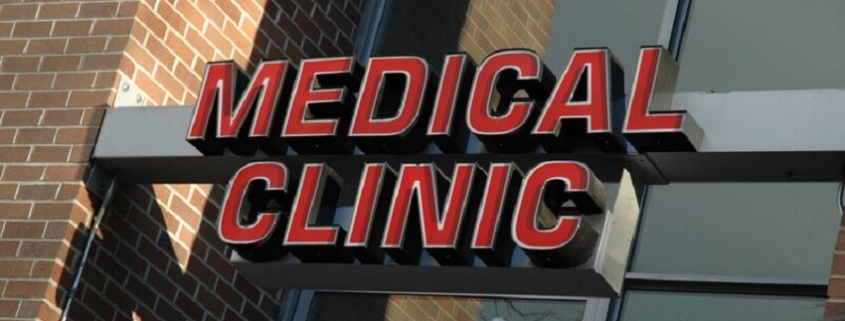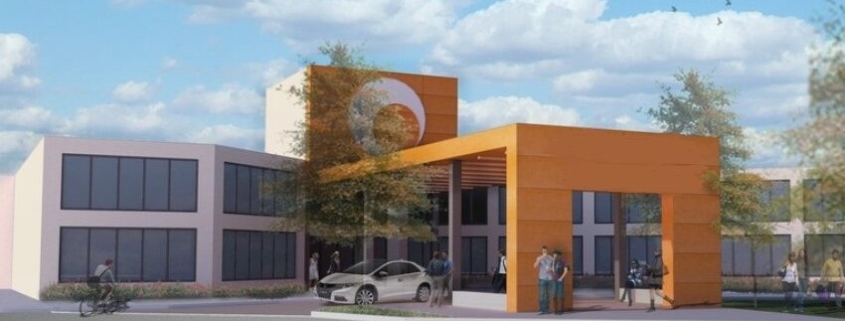Changing consumer and practitioner mindsets are aligning with landowners to bring more healthcare tenants to the retail space.
So-called “medtail” is a growing trend in North Texas, in part due to hospital systems and real estate brokers both transitioning new developments away from large community hospitals and stand-alone healthcare buildings and into pared-down medical centers and retail locations.
The rise of medtail accompanies the growth of online shopping, decreasing the need for brick and mortar retail locations for consumer goods. But most healthcare services can’t be done online, making them great candidates for retail locations to drive foot traffic in a development.
Dallas-based Northwood Retail, which operates the Shops at Park Lane, has been at the forefront of this trend, signing retail leases with seven healthcare providers and nine wellness locations last year.
Retail is less about soft good clients, says Northwood President Ward Kampf, and much of that is due to a perfect storm of demographic changes. Aging baby boomers are in greater need of healthcare facilities, and younger Millennials and Gen Z consumers bring a heightened awareness of health and wellness to their discretionary income. While the older generation is looking to slow the aging process, social media growth means that young people today have more eyes on them than past generations. They want to look healthy and beautiful on camera, leading to a focus on health and wellness.
Consumers want convenience as well. Medtail allows them to get in and out quickly and avoid large medical centers and shopping malls with inconvenient parking. Ferrari Orthodontics in Lakewood and Westlake Dermatology across the street from SMU are new examples of health and beauty retail developments reflecting demographic shifts.
“Kids today are more aware of appearances,” Kampf says. “These businesses play to younger consumers.”
The growth of urgent care has been a beneficiary of this growing trend in North Texas. Children’s Health, Baylor Scott and White Health, Texas Health, and Medical City Healthcare all have their own outpatient urgent and primary care brands, which can be found in retail locations around DFW. Urgent care is meant to be convenient and efficient, and retail makes excellent sense for patients.
“As you look at the expansion of facilities, and what types of facilities we talk, the retailization of healthcare is about really two things: visibility of the brand and accessibility for the patients,” says Ethan Garner, senior vice president for JLL.
Foot traffic is an integral part of the equation too. Because of how we consume healthcare today, health and wellness locations can be significant drivers for shopping centers, so landowners are tapping health, wellness, and dental locations to fill empty retail space. Retail giants CVS and Walgreens have also launched their own health clinics, adding more providers to retail developments.
“Mindsets are changing,” Kampf says. “A doctor can drive traffic. People are asking, ‘Does it fit?’”
Concierge medical practices are another model that lends itself well to retail, and their growth has been a driver of the medtail trend. Administrative hassles and shrinking reimbursement rates have led many physicians to strike out independently and operate outside of the health insurance market. These physicians don’t want to retire but are tired of dealing with red tape, and if they can attract enough well-off patients, it can be lucrative.
“Doctors want to do their own thing and to get their own clientele,” Kampf says. “For families and older people, they want that ability or access 24/7 because they know they’re getting older, and they want quick access.”
Highland Park Village, one of the state’s most luxurious retail spaces (and its first), is not immune to the trend. Dr. Barbara Sturm recently opened a med spa offering wellness and skin care services. A generation ago, it would have been outlandish to find a physician’s office in between Prada and Gucci, but healthcare is increasingly seen as a prestige tenant.
“They’re going to be careful that their strip center is not going to get run down or have a vape shop next to them,” says Thomas Allen, CEO of Practice Real Estate. “They’re going to pay the rents to get the nice centers.”
Both luxury and mid-level retail landowners continue to see healthcare as an asset rather than an option of last resort because of the way we consume healthcare today.
“This is for all spectrums. Whether it’s the highest-end center or it’s about convenience, people want these services to be part of the retail mix,” Kampf says. “People want retail presence, footsteps, and awareness.”
Source: D CEO Magazine




